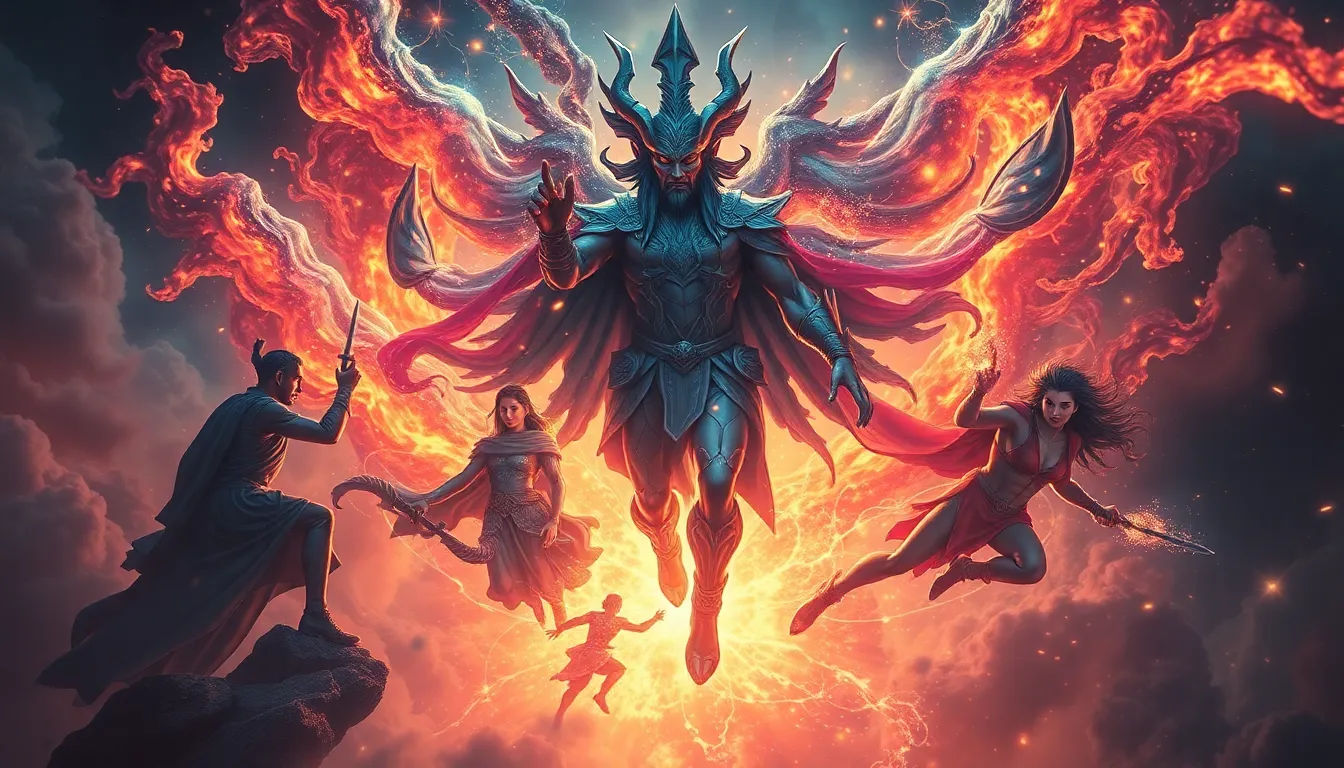The Influence of Christianity on Celtic Mythological Beliefs
Over the centuries, the rich tapestry of Celtic mythological beliefs has been deeply intertwined with the spread of Christianity across the Celtic lands. Let us delve into the fascinating relationship between these two belief systems and understand how Christianity influenced traditional Celtic mythology:
1. Blending of Belief Systems
When Christianity began to take root in Celtic regions, there emerged a complex interplay between the existing pagan beliefs of the Celts and the teachings of Christianity. Many Celtic myths and folklore stories were reinterpreted and co-opted by Christian missionaries to align with Christian doctrines. For instance, pagan deities like Danu were often equated with Christian saints.
2. Transformation of Symbols
One prominent aspect of the influence of Christianity on Celtic mythology was the transformation of sacred symbols. Celtic symbols with pagan significance, such as the triskelion or the Celtic knot, were redefined to represent Christian concepts like the Holy Trinity. This blending of symbols allowed for a smoother transition from pagan beliefs to Christian practices.
3. Syncretism and Adaptation
As Christianity gained dominance in Celtic regions, aspects of Celtic mythology gradually merged with Christian traditions through a process known as syncretism. Many Celtic festivals and rituals were absorbed into Christian celebrations, leading to the creation of holidays like Christmas and Easter, which incorporated elements of both belief systems.
4. Persistence of Celtic Tradition
Despite the pervasive influence of Christianity, elements of Celtic mythology continued to persist in the cultural fabric of the Celtic peoples. Stories of legendary heroes like Cú Chulainn and the mythical creatures of the Otherworld retained their significance, demonstrating the enduring resilience of Celtic mythological beliefs in the face of Christianization.
In conclusion, the influence of Christianity on Celtic mythological beliefs was a complex and multifaceted process that shaped the spiritual landscape of the Celtic people. By understanding the interplay between these two belief systems, we can gain deeper insights into the evolution of Celtic mythology and its enduring legacy in the modern world.
FAQ about the Influence of Christianity on Celtic Mythological Beliefs
What was the impact of Christianity on Celtic mythological beliefs?
Christianity introduced new religious concepts that gradually influenced and merged with traditional Celtic mythological beliefs. This led to reinterpretations and syncretism, where some elements of Celtic mythology were incorporated into Christian practices.
Did Christianity completely replace Celtic myths?
No, Christianity did not fully replace Celtic mythology. Instead, it coexisted with and adapted some aspects of Celtic beliefs. Elements like legends of saints, holy places, and mystical creatures often intertwined with preexisting Celtic narratives.
How did Celtic mythology adapt to the influence of Christianity?
Celtic mythology underwent a process of integration with Christian beliefs, incorporating themes such as redemption, salvation, and morality. Some Celtic deities were reimagined as saints, while sacred sites were repurposed as Christian places of worship.
Were there conflicts between Celtic mythology and Christianity?
Initially, there were tensions and conflicts between Celtic pagan practices and early Christian missionaries. However, over time, compromises were made, leading to the integration of certain Celtic traditions into Christian rituals and festivals.
Can we still see the influence of Christianity on Celtic myths today?
Yes, the influence of Christianity on Celtic mythology is




